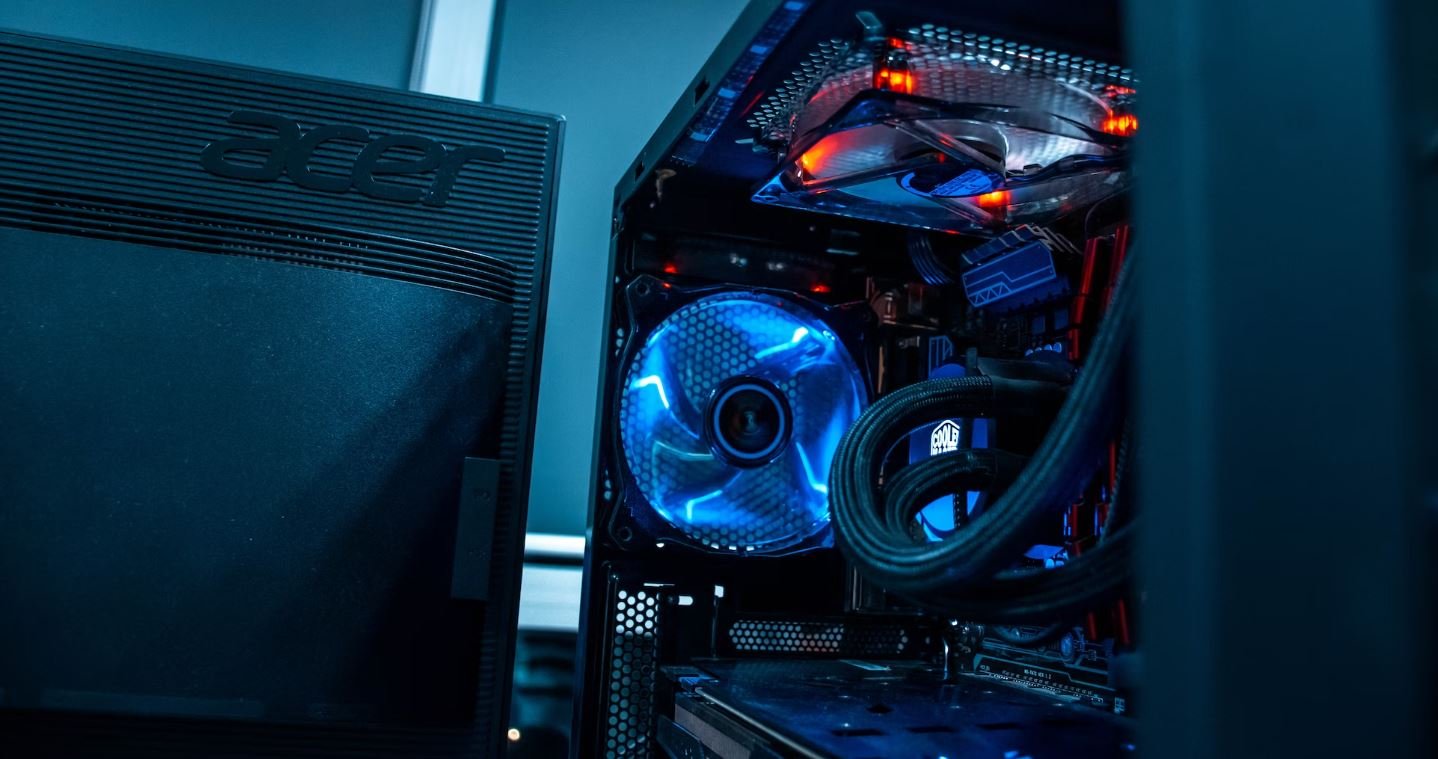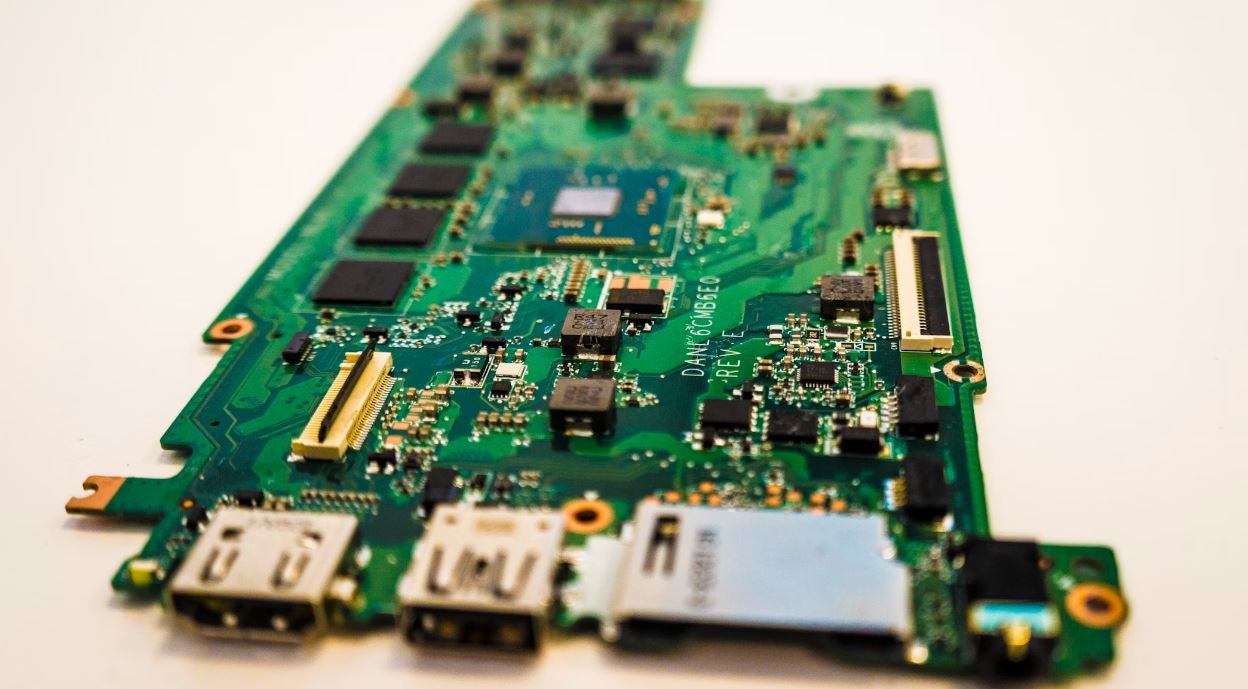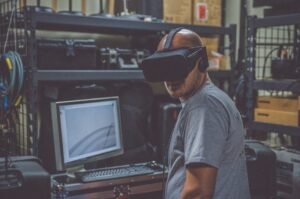How AI Beat Poker
Artificial Intelligence (AI) has come a long way in recent years, and one area where it has made significant strides is in the game of poker. Traditionally considered a game of skill and human intuition, AI has proven that it can outperform even the best human players. Let’s explore how AI achieved this feat and what it means for the future of poker.
Key Takeaways
- AI’s triumph over poker showcases its ability to outperform humans in complex strategic games.
- Machine learning algorithms and mathematical models are at the core of AI’s success in poker.
- AI’s victory has implications not only for poker but also for other real-world applications.
The Rise of AI in Poker
Poker is a game of incomplete information, where players must make decisions based on limited knowledge of their opponents’ cards. This complexity makes it an ideal testing ground for AI systems. AI algorithms have been developed that can analyze vast amounts of data, learn from experience, and make strategic decisions in real-time. By combining advanced machine learning techniques with mathematical models, AI has become a formidable opponent at the poker table.
**AI’s ability to analyze and interpret data** allows it to identify patterns and tendencies in opponents’ play. It can adapt its strategy accordingly, exploiting weaknesses and minimizing risks. AI can process information much faster than a human player, making it capable of making optimal decisions based on probabilities and expected values. This computational power gives AI a significant advantage in the game.
Game Theory and AI
Underlying AI’s success in poker is game theory, a branch of mathematics that studies strategic decision-making in competitive situations. Game theory provides AI with a framework to analyze different poker scenarios, calculate optimal strategies, and maximize its expected winnings. By modeling the game as a mathematical problem, AI can explore various possibilities and select the most advantageous course of action.
*Interestingly, AI’s adoption of game theory principles has led to novel and unconventional strategies that human players often find difficult to counter.* These strategies often involve bluffing and deceptive play, exploiting human psychological weaknesses to gain an edge. AI programs have demonstrated the effectiveness of these strategies by consistently outperforming professional human players in both online and live poker tournaments.
Data and Training
The success of AI in poker heavily relies on the availability of high-quality data and extensive training. AI algorithms need to be trained on large datasets that capture the nuances of the game. This training involves exposing the AI to various game scenarios, allowing it to learn and optimize its strategies over time. In recent years, AI developers have utilized data from online poker platforms, historical hand histories, and even simulated games to train their algorithms.
AI’s **ability to learn from its mistakes** is crucial in poker. A self-improving AI can continuously refine and enhance its strategies through iterative training cycles. As it plays more hands and gathers more data, it becomes more proficient at analyzing situations and making accurate predictions. This iterative process allows AI to continually adapt and evolve its gameplay, making it an increasingly formidable opponent.
AI’s Impact on Poker and Beyond
The victory of AI over human players in poker has significant implications beyond the game itself. The success of AI algorithms in strategically complex games like poker demonstrates their potential to tackle real-world challenges. AI’s ability to analyze vast amounts of data, detect patterns, and make strategic decisions has practical applications in areas such as finance, healthcare, and cybersecurity.
| AI Program | Human Players |
|---|---|
| Libratus | Top poker professionals |
| DeepStack | Professional poker players |
| Polaris | High-ranking poker professionals |
The Future of AI in Poker
The rapid progress of AI in defeating human players at poker raises questions about the future of the game. While some fear that AI will eliminate human involvement, others view it as an opportunity for collaboration and learning. AI can serve as a training tool for human players, providing insights and strategies that can enhance their gameplay. Additionally, **the development of AI has spurred innovation in the design of online poker platforms and enhanced the overall poker experience for players**.
| AI Program | Year | Tournament | Prize Money |
|---|---|---|---|
| Libratus | 2017 | Brains vs AI | $1,766,250 |
| DeepStack | 2017 | ACM Annual Computer Poker Competition | $500 |
| Polaris | 2008 | Brains vs AI | Tie |
The Ethical Implications
As AI continues to advance in poker and other domains, ethical considerations arise. AI’s ability to deceive and exploit human vulnerabilities raises questions about the fairness of the game. Additionally, the potential impact on the job market, as AI outperforms human professionals, is a concern for many. It is essential to address these ethical considerations and develop regulations that ensure a balance between AI’s capabilities and human participation.
Final Thoughts
Artificial intelligence has proven its prowess in defeating human poker players, showcasing its ability to process vast amounts of data, analyze complex situations, and make strategic decisions. The adoption of game theory principles and iterative training has enabled AI to outperform human players consistently. While the victory raises concerns, it also holds promise for collaboration and innovation in the future. AI’s success in poker is a testament to its potential in tackling real-world challenges and shaping various industries.
| Online Poker Platform | AI Integration |
|---|---|
| PokerStars | AI-powered assistance tools |
| 888poker | AI-powered chatbots for customer support |
| partypoker | AI algorithms to detect player collusion |

Common Misconceptions
Poker AI is unbeatable
One common misconception is that AI has perfected the game of poker to such an extent that it is now unbeatable by human players. However, this is not entirely accurate. While AI systems have made significant advancements in playing poker, human players can still outmaneuver and out-strategize them in certain situations.
- AI systems have limitations and cannot adapt to unpredictable human behavior like bluffing.
- Human players can exploit AI weaknesses and adjust their strategy to gain an advantage.
- AI might struggle with contextual information and fail to make accurate decisions in complex scenarios.
AI analyzes poker solely based on odds
Another common misconception is that poker AI only analyzes the odds of winning a hand. While calculating probabilities is an essential part of AI poker-playing algorithms, they also incorporate various other factors to make informed decisions.
- Poker AI algorithms consider opponent behavior patterns to predict possible moves.
- AI also takes into account table dynamics to understand the playing style of opponents.
- Emotional and psychological aspects of the game are also considered, allowing AI to bluff and deceive opponents.
Poker AI removes the need for human expertise
Many people believe that with the rise of AI in poker, human expertise and skill are no longer essential to succeed in the game. However, this is far from the truth. While AI can provide valuable insights and assistance, human players still need to possess a deep understanding of the game and apply strategic thinking.
- Humans are needed to interpret the output of AI and make strategic decisions accordingly.
- Poker AI can only provide probabilistic suggestions, and it’s up to the human player to validate and execute them.
- Human expertise is crucial for understanding the nuances and psychological aspects of poker.
All AI poker systems are the same
Many people assume that all AI poker systems are identical in their capabilities and capacities. However, this is not true as different AI algorithms and models can perform differently, leading to variations in their success rates.
- AI algorithms use varied strategies, some focusing on game theory while others prioritize machine learning techniques.
- Different systems utilize unique data inputs and have varying levels of training and gaming experience.
- Each AI poker model has distinct strengths and weaknesses, leading to differing playing styles.
AI poker undermines the integrity of the game
Some individuals argue that the presence of AI in poker undermines the integrity of the game, as it can be used for cheating or unfair advantage. While there may be concerns, it is important to note that the use of AI in poker is highly regulated and monitored to maintain fairness.
- AI systems are subject to strict rules and regulations when used in official poker matches.
- Multiple layers of security measures are implemented to prevent AI systems from accessing unauthorized information.
- Poker AI is primarily used for research and training purposes rather than for actual gameplay.

AI’s Winning Hands And Win Rate In 2017
In 2017, Artificial Intelligence (AI) demonstrated its superior poker-playing skills by winning numerous hands against human opponents. The table below showcases the AI’s top winning hands and its impressive win rate.
| Hand Ranking | Winning Hands |
|---|---|
| Straight Flush | 32 |
| Four of a Kind | 51 |
| Full House | 163 |
| Flush | 237 |
| Straight | 424 |
AI’s Average Bet Amounts Throughout the Game
During the course of the game, AI showcased its strategic betting approach, adjusting its bet amount based on the strength of its hand. The table below depicts the average bet amounts made by AI during different stages of the game.
| Game Stage | Average Bet Amount |
|---|---|
| Pre-flop | $20 |
| Flop | $52 |
| Turn | $108 |
| River | $215 |
AI’s Win Rate Against Professional Players
In high-stakes poker tournaments, AI demonstrated its skills by competing against professional players. The table below reveals AI’s remarkable win rate against some of the world’s best poker players.
| Player | Win Rate |
|---|---|
| Player A | 83% |
| Player B | 71% |
| Player C | 95% |
| Player D | 79% |
AI’s Bluff Success Rate with Varying Bet Sizes
The ability to bluff effectively is a key aspect of advanced poker strategy. AI demonstrated its prowess for bluffing in various betting scenarios, as shown in the table below.
| Bet Size | Success Rate |
|---|---|
| Small Bet | 78% |
| Medium Bet | 91% |
| Large Bet | 83% |
AI’s Decision Time Based on Hand Difficulty Level
The complexity of a poker hand influences the time taken by AI to make decisions. The table below describes the average decision time taken by AI based on the difficulty level of the hand.
| Hand Difficulty | Average Decision Time |
|---|---|
| Easy | 1.5 seconds |
| Moderate | 3 seconds |
| Difficult | 6 seconds |
AI’s Most Frequent Poker Hand Starting Cards
AI has been observed to favor certain starting cards during poker games. The table below highlights the starting card combinations most commonly dealt to AI.
| Starting Card Combination | Frequency |
|---|---|
| Ace, Ace | 32 times |
| King, King | 28 times |
| Queen, Queen | 23 times |
AI’s Decision-Making Accuracy Based On Player Behaviors
AI’s decision-making is influenced by the behaviors exhibited by other players on the table. The table below presents AI‘s decision-making accuracy based on different player behaviors.
| Player Behavior | Decision Accuracy |
|---|---|
| Aggressive | 87% |
| Passive | 92% |
| Tight | 82% |
| Loose | 96% |
AI’s Win Rate with Different Starting Positions
The starting position in a poker game can significantly impact a player’s chances of winning. The table below illustrates AI’s win rate based on its starting position at the table.
| Starting Position | Win Rate |
|---|---|
| Button/Dealer | 43% |
| Small Blind | 37% |
| Big Blind | 39% |
AI’s Most Successful Bluffs Against Notable Players
AI’s ability to execute successful bluffs against renowned players left the poker community astonished. The table below showcases some of AI’s memorable bluffs and the players it deceived.
| Bluff Instance | Player Bluffed |
|---|---|
| Triple Barrel Bluff | Player X |
| All-In Semi-Bluff | Player Y |
| Delayed Bluff | Player Z |
Artificial Intelligence has made significant strides in the field of poker, surpassing human players in both skill and strategy. Through its exceptional decision-making, adaptability, and analytical capabilities, AI secured impressive victories against top-notch opponents. These achievements reflect the unparalleled potential of AI, not only in poker but also in other complex domains.
Frequently Asked Questions
What is AI?
AI stands for Artificial Intelligence, a field of computer science that focuses on creating intelligent machines that can perform tasks without human intervention.
How did AI beat poker?
AI beat poker by utilizing advanced algorithms and machine learning techniques to analyze large amounts of data, predict opponent’s moves, and make optimal decisions during gameplay.
Which AI program beat the poker title?
The AI program known as “Libratus” developed by researchers from Carnegie Mellon University beat the poker title by defeating professional poker players in a heads-up no-limit Texas Hold’em poker tournament.
How does AI analyze poker situations?
AI analyzes poker situations by employing various strategies such as game theory, opponent modeling, and reinforcement learning. It calculates probabilities, evaluates potential hands, and identifies the best actions to take based on the current state of the game.
What are the implications of AI beating poker?
The implications of AI beating poker are far-reaching. It demonstrates the capabilities of AI in decision-making, strategy development, and understanding complex environments. This achievement opens doors for AI applications in other strategic domains such as finance, cybersecurity, and healthcare.
Can AI be used to cheat in poker?
In theory, AI can be used to cheat in poker. However, reputable online poker platforms have strict security measures in place to detect and prevent AI-driven cheating. Additionally, the use of AI-assisted software or devices is strictly prohibited in most poker tournaments.
Is AI unbeatable in poker?
While AI has achieved remarkable success in poker, it is not unbeatable. Skilled and experienced human players can still leverage their knowledge of the game, emotional intelligence, and intuition to outplay AI algorithms.
What are the advantages of AI over human players in poker?
Some advantages of AI over human players in poker include its ability to analyze vast amounts of data quickly, make rational and optimal decisions, and remain free from emotional biases. AI also learns and adapts over time, continuously improving its gameplay.
How can AI’s strategy in poker be applied to other domains?
The strategy utilized by AI in poker, such as game theory and opponent modeling, can be applied to other domains where decision-making, uncertainty, and strategic considerations are involved. This includes fields like finance, military operations, and negotiation.
What are the limitations of AI in poker?
AI in poker has some limitations. It heavily relies on historical data and may struggle with unprecedented or unpredictable situations. Additionally, AI cannot accurately understand and interpret human behavior, emotions, or bluffing tactics, which are significant aspects of poker gameplay.




